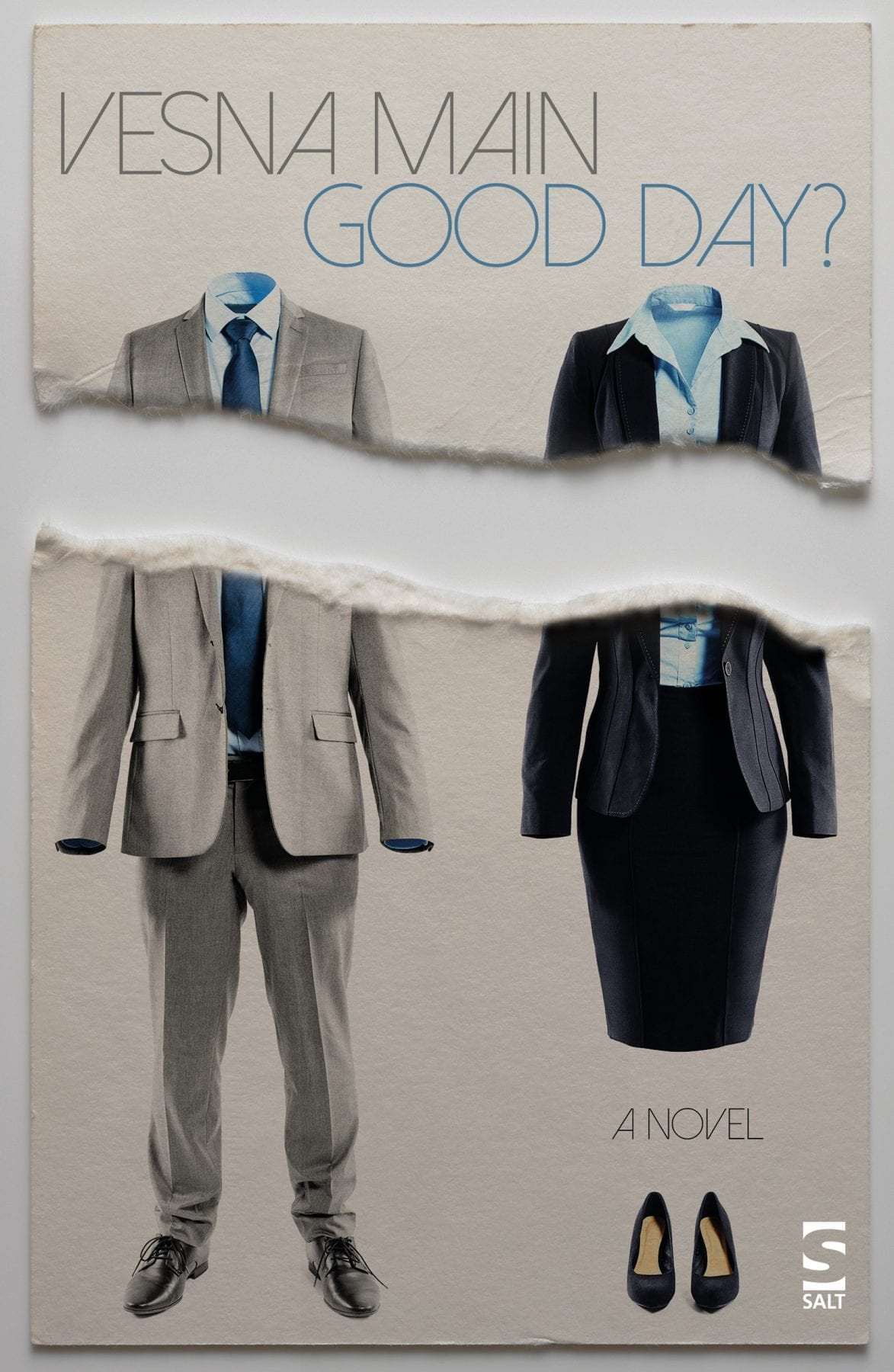Acclaimed author Vesna Main, who lives in Putney, tells us about her new novel Good Day? and the ideas that helped it come to fruition
One January more than a decade ago, Woman’s Hour broadcast an interview with a woman whose husband had been visiting prostitutes for many years. The programme had an online discussion board and many other women poured out similar traumatic stories.
Most of them were in happy, sexually fulfilling relationships. More often than not, their partners were professionally successful, gregarious. There were many conflicting views – some hated the prostitutes seeing them as rivals but also believed as ‘sisters’ they should support them.
That discussion made me question many of my views. I used to think men who visited prostitutes were mostly single and that prostitution was no different from any other industry, with workers freely offering a service in exchange for remuneration. Reading academic research and interviews with prostitutes, it became clear to me that selling one’s body is very different from selling one’s skills and that most of the sex workers were forced to do so usually through social or personal circumstances.
From the material I gathered, a story emerged of two characters, Richard and Anna, a middle aged, middle-class, educated, articulate couple. Richard had been seeing prostitutes for many years and when he was discovered, Anna’s world fell apart. Her past felt false knowing he had had a secret life. Her dignity as a woman was undermined: her husband had chosen others over her. If she confided in a friend, she feared being judged as a woman who denied sex to her partner. She was at a loss at to what to do.
I wrote two versions of the novel, both in a more or less classic realist style, the style that I associate with the great novels of the 19th-century. I abandoned both versions.
After various false starts, I had the idea of writing a novel within a novel. In Good Day?, the main character is a woman writer and every day, as her husband, the reader, returns from work, they discuss her progress.
The story of Richard and Anna is the novel she is working on. In this way, the text had two equally important view points and the dialogue structure suited the questioning nature of the exchanges between the reader and the writer which, as the story progresses, become increasingly confrontational, with the two regularly siding with Richard or Anna, according to their gender role.
We asked Vesna about where she lives and how it inspires her…

Q. Do you have any favourite local places to write, or simply relax? “I tend to write at home. Putney is great for walks and walks are good for thinking. Anywhere I go, the world of the text I am working on is with me and any ideas that pop into my head, I jot down in a pocket notebook. I particularly love the path up or down the Thames near Wandsworth Park. The walled garden at the Bishop’s Palace, just across Putney bridge, is another favourite spot.”
Q. Do you already know what your next book is going to be about? “I wrote a novel last summer and it is in my drawer, left to ‘mature’ before I send it out. Its protagonist is a woman of 92, a former piano teacher. The story takes place over one day as she looks back on her life. Without disclosing what happens, let me just say that my main impulse in writing it was to create a woman at an advanced age who is still very much a sexual being, longing for love and physical affection. It is a positive, affirmative story.”
Q. Do you feel as though you live with the characters while you’re writing them? “In some ways, it is inevitable. I am not a writer who works out the story in advance. I start with an idea, or an image, and the characters and their lives emerge, or not, gradually as they gain confidence in me and tell me what they are about. I have to be patient and leave them time to come back to me. While waiting, I might write a short story or a novella. At the moment, I have two projects I have just started, or rather false started. But that’s how it works with me. I have to keep trying, beginning and abandoning the first 10,000 words until the story emerges. One of the two novels I am working on emerged from a sentence one of my grown-up daughters said, a casual, inconsequential remark that sparked my imagination. The other grew from something I saw through the window of my study, which faces a large block of flats with balconies. One warm day, a man took his laptop onto his balcony and proceeded to work there. At some point we seemed to look at each other, or at least, that’s what it appeared to me. I don’t think he saw me because my side of the house was in the shade but that’s irrelevant. A vague trajectory of a story emerged, very blurred, rather like an image that appears on photographic paper bathing in a tray of film developer.
Q. Do you have any favourite book shops locally that you enjoy visiting?
“The second-hand bookshop by Putney Bridge is excellent and the owner is very knowledgeable.”
Q. How friendly do you feel the Putney community is?
“The best thing about Putney residents is their diversity, in terms of age, class and ethnicity. The area is also home to many Europeans and, as a Francophile, I love hearing French and take every opportunity to speak it.”











